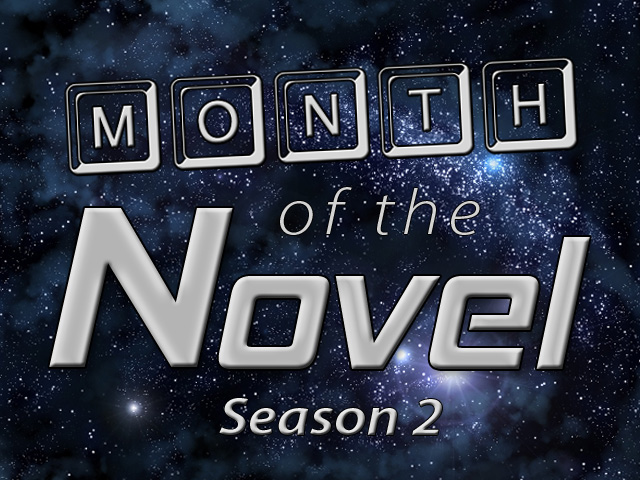My post about loglines from The Black List only covered five out of the enormous list of choices. I’ve decided it would be good to see more, including some that I think are excellent loglines (can’t be negative all the time!). So, without further ado, here are five more loglines from the 2012 Black List.
Americatown: In a China-dominated near future, a former LAPD officer attempts to save his family from destitution in Los Angeles by working for a crime lord in the American ghetto within a thriving Hong Kong.
While I don’t find this logline compelling to me personally (not my kind of story), it is a well crafted one. We have a setup (“In a China-dominated near future”), a main character who is well described (“former LAPD officer”), and a good grasp of the situation (“working for a crime lord” to “save his family”). All of the necessary elements are here, and this is pretty much perfect.
Whalemen: The leader of a fourteenth century Scottish whaling village must seek out and do battle with a whale many times larger than any he has ever seen in order to ransom back his son from the occupying English.
This one is almost there. Most of its problems are due to too much information. By streamlining, we can make it snappier.
“The leader of a 14th century Scottish whaling village must seek out and do battle with a monster whale to ransom back his son from the occupying English.”
Now that we have a much simpler, easier to follow logline, we can think about what we might change to improve it. What we have here is good, and I might look into this film from this logline alone, but we could punch it up by giving the Scottish leader an adjective, and maybe by putting a face on the English. The latter could possibly be accomplished by changing English to something like cruel English captain.
Black Box: When Air Force One crashes, a journalist discovers a cover up after gaining access to the plane’s black box data and must unravel the mystery.
I chose this one because it has almost everything it needs—just in an order that’s confusing. With a quick re-write, this somewhat clunky logline becomes a fairly good one.
“When Air Force One crashes, a journalist must unravel a mystery when he gains access to the plane’s black box data and discovers a cover up.”
And I’ll probably sound like a broken record when I say that this is another logline that would benefit from giving an adjective to the main character. If he was a down-and-out journalist, or a struggling journalist, this logline would suddenly pop and be that much more interesting.
Jojo Rabbit: After being severely hurt by a grenade at Hitler youth camp, a prideful and nationalistic ten-year-old boy discovers that his mother is hiding a fifteen-year-old Jewish girl in their house.
This is another good one. It has a clearly defined protagonist (“prideful and nationalistic ten-year-old boy”), a conflict-filled situation (Hitler youth member’s mother is hiding a Jew), and it reads well. I wouldn’t change a thing.
McCarthy: It is 1951. Junior Senator Joe McCarthy feels lost. He’s anonymous, just another suit on Capitol Hill. He craves attention and celebrity. He’s desperate to be noticed, to be adored. Inspired by the response of the American public to the House of Un-American Activities Committee, McCarthy decides that communism will be his defining issue. What follows is nearly unthinkable — national fame, a shocking conspiracy, a sitting President afraid to oppose him, and a torrid journey of self destruction and paranoia.
This monstrosity is not a logline. This is a summary. A logline is a single sentence, which this paragraph could easily become. Watch:
“Craving attention and celebrity, Senator Joe McCarthy makes communism his defining issue and begins a shocking conspiracy that will result in his own destruction.”
Everything in my logline is in the original paragraph. Here’s the paragraph again, with the parts I used in bold:
It is 1951. Junior Senator Joe McCarthy feels lost. He’s anonymous, just another suit on Capitol Hill. He craves attention and celebrity. He’s desperate to be noticed, to be adored. Inspired by the response of the American public to the House of Un-American Activities Committee, McCarthy decides that communism will be his defining issue. What follows is nearly unthinkable — national fame, a shocking conspiracy, a sitting President afraid to oppose him, and a torrid journey of self destruction and paranoia.
If you’ve read my book Finding the Core of Your Story, you’ll recognize this as a form of the Handy-Dandy Three-Sentence Trick. Sometimes the best way to write a logline is to brain-dump into a massive paragraph, then find the interesting parts and arrange them into a streamlined sentence.
I hope this look at some Hollywood loglines has been helpful to you. Hopefully, you’ve learned some new tricks to apply to your own story’s logline to make it really shine.
Help Me Tell My Story!
I’m not always blogging about how to write good stories. Sometimes I’m telling stories of my own. Right now, I’m doing pre-production on the second season of a web series based on NaNoWriMo called Month of the Novel. It’s going to be pretty cool, and I’m really excited about it. My crew and I are trying to raise some funding so we can make it even better, and I’d appreciate it if you’d check out our Indiegogo campaign and help spread the word. Thanks!
